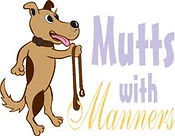DeMystifying Puppy Training
- Maria Cunningham

- Apr 12
- 2 min read
At the time of writing, I’ve been training puppies both in their home and also in puppy schools over about 32 years. In this time, thankfully, techniques have evolved to make raising a puppy much more like raising a child rather than bullying an alien species into submission, or physically forcing a young pup (or dog of any age) into the various positions that we feel they should comply with. Our definition of what a well-behaved or well-trained dog should be has also changed – they need to be significantly more well-behaved than back in the days of lower-density living, yet interestingly, our expectations of them on the obedience front are far lower than used to be, which can result in more mishaps as our beloved pooch rockets out of the park in hot pursuit of… potentially a leaf blowing on the wind.
Our perception of the importance of socialisation has also experienced a big shift. Gone are the days of the human family replacing the pack, with the household dog rarely going for walks, and if he did, socialising with other dogs was usually avoided rather than encouraged. This particular pendulum has swung so far the other way that now, in working with behavioural issues in adult dogs, there are many inappropriate behaviours as a consequence of copious amounts of inappropriate social engagement from a very young age. This results in lovely, friendly dogs who are completely clueless as to the cues of their own species and think that playing with other dogs should be a cross between dodgem cars and American football, with a great deal of grabbing onto other dogs with their mouths, for good measure. This is not appropriate social behaviour.
Although the goal is not to teach you how to toilet train your puppy or how to stop your pup from eating the house, the goal is to clarify how we communicate our wants, modify or eliminate unwanted behaviours, and refine the commands that a dog really should have versus those often taught in puppy pre-school. It is a comparison between what many puppy schools teach and my opinion on the practicality and necessity of commands commonly taught now, and also the strategies or guidance given in modifying behaviours.
Don't get me wrong - puppy school is a very important experience for our pups, but I want you to be able to make educated choices about what you apply with your own pup.
Leave me a comment to let me know whether you'd like to hear more on this topic, and I'll post a continuation in a week or so. Otherwise, feel free to comment on what you DO want to hear (read) more on




















Comments